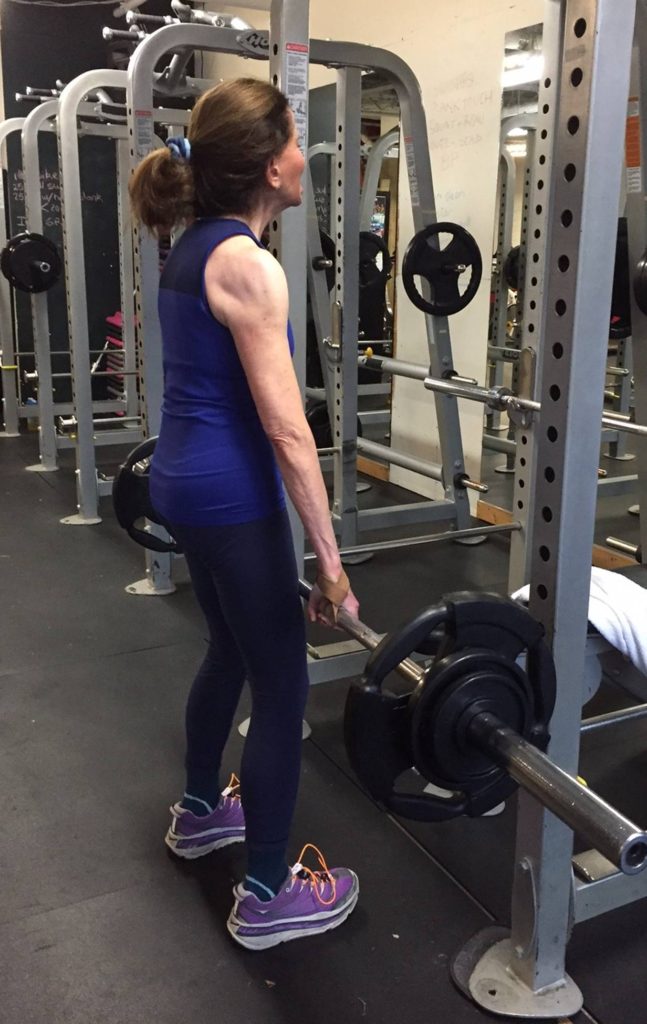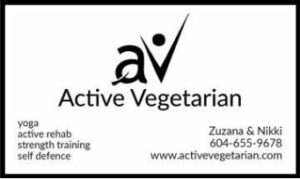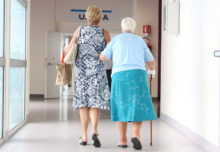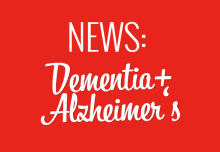Dear Hannah,
– Beginning a New Chapter
Dear Hannah,
– Intrigued by Weight Training
Dear “Beginning a New Chapter” & “Intrigued by Weight Training”
I would bet that your children and grandchildren live far away. I would bet that you moved to Vancouver from elsewhere less than 25 years ago. Your circle of friends and acquaintances has probably diminished due to illness and death? Perhaps physical limitations have slowed you down?

At the age of 75 I took up weight training (resistance training) seriously. I bought a squat rack, a barbell, weights, kettlebells and medicine balls; I hired two trainers to coach me. I now workout three times a week—with Martina Yabecova at Train on Main, and with Zuzana Fajkusova and Nikki Lefler, as well as Laina Barber in my home gym. The results are phenomenal; my bone density, which was at the danger level, has increased to a normal healthy level. I have gained muscle and lost fat; and my rowing, cycling and step-machine times are getting better. I have taken on increasingly more intellectually-challenging obligations for JSA, using new creative and computer-skills activities.
I am not alone. Seniors are going to the gym, taking private sessions with trainers and participating in cross-training classes which incorporate weight training with aerobic exercises. The science of fitness is well-documented:
Norman Doidge describes in his book, The Brain’s Way of Healing, ways to stave off dementia. First on his list is “Exercise (defined as vigorous exercise or walking at least two miles a day, or biking 10 miles a day).
It is now crystal clear that physical exercise helps preserve brain functioning.
Did you know that dementia rates have been plunging? Believe it or not, the latest report finds a 20 percent decline in dementia incidence per decade, starting in 1977. With more older people in the population every year, there may be more cases in total, but an individual’s chance of getting dementia has gotten lower and lower.
So dear “Beginning a New Chapter” and “Intrigued by Weight Training”, have I convinced you to get yourself to a gym—sign up for a weight training or cross-training class for seniors? They exist everywhere, at JCC, at UBC, at the YMCA and at your local fitness centres. Join other seniors who, instead of praying for a cure for dementia, are out there exercising at least three times a week for an hour in order to delay or stave off dementia. You will increase your physical, mental and emotional well-being immediately—that is, there is instant gratification! Forget about long-term goals; rather, you will enjoy the actual physical movements, the interaction with a trainer or the others in your group, and the pride of adding another two pounds to the barbell. Gretchen Reynolds states “Being out of shape could be more harmful to health and longevity than most people expect…poor physical fitness may be second only to smoking as a risk factor for premature death.”
Articles to read:
The Brain Gain, June 2016, www.everythingzoomer.com page 48-5
Being Unfit May be Almost as Bad for You as Smoking, Gretchen Reynolds, New York Times, July 27, 2016.
Can You Get Smarter? Richard a. Friedman, New York Times, October 23, 2015.
Lifting Lighter Weights Can Be Just as Effective as Heavy Ones, Gretchen Reynolds, New York Times, July 20, 2016.
A Medical Mystery of the Best Kind: Diseases Are in Decline, Gina Kolata, New York Times, July 8, 2016.
My Body Zone: The Top Ten Benefits, www.mybodyzone.com/2008/12/11/10-benefits-of-strength-training-for-seniors/ , 2016-01-02.
Pool of Thought, Richard A. Friedman, New York Times, July 16, 2016.
Which Type of Exercise is Best for the Brain? Gretchen Reynolds, New York Times, February 17, 2016.
Hannah, M.Sc. Counselling
Email: hannah@jsalliance.org









